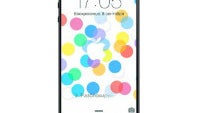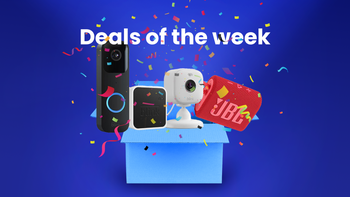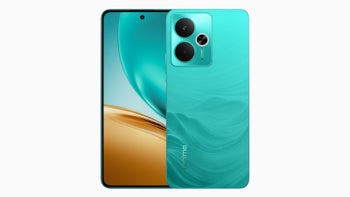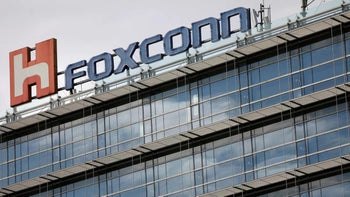Why would Apple ditch the iPhone brand for its phablet?
This article may contain personal views and opinion from the author.

There is a new report from from Taiwan’s Economic Daily News, there is almost certainly another handheld device coming from Apple this year to go along with the new 4.7-inch iPhone 6. That much isn't really news at this point. The interesting thing is that the Economic Daily News claims that the 5.6-inch device will not carry the iPhone branding. Frankly, we're not sure what to make of this rumor.
The report claims that both devices will launch in Q3, which makes sense, because that is Apple's traditional quarter for iPhone releases. It says there will be the 4.7-inch iPhone 6, which is a rumor we've heard plenty before. But, things get odd when moving on to the phablet-sized device. The Economic Daily News claims that this is an "experimental" device that will feature a 5.6-inch sapphire glass display, and that it will not carry the iPhone name.
The size of the device has been up for debate for a while, so that part of the rumor can be left aside. The idea of a 5.6-inch sapphire glass display seems fairly unrealistic, but possible. But, to say the device will not carry the iPhone name is a very interesting assertion. The report doesn't say what name the device will carry, so Apple could simply call it an iPad Nano and the rumor would be accurate. It could also carry the iPhone Pro name to go along with the rumored 12.9-inch iPad Pro, but that wouldn't fit with the rumor.
The shadow
Let's imagine for a moment that the rumor is true, and that Apple is going to give the device its own branding. We won't waste time trying to come up with the name of the device, because the question of why Apple would do this is far more interesting. The iPhone and iPad brand names carry huge amounts of power in the market, so it would obviously be a big risk to avoid using either name. But, it could be a great opportunity for Tim Cook to really put his stamp on Apple and show the world that it is his company now.
Being the man that has to replace Steve Jobs is an almost impossible task. The hype is enormous and the expectations are likely unrealistic. You have to deal with the constant barrage of both those who will try to knock you down simply for not being the same kind of leader and those who wrongly believe you to be carrying on that same legacy. For better or worse, the specter of Steve Jobs is beginning to fade, and Tim Cook may want to have his moment announcing something new.
Defining a market
While those of us who spend our time reading about the mobile ecosystem constantly think of devices in the 5.3-inch to 6.4-inch range as "phablets", the average consumer doesn't really know what a phablet is. We saw last year that Nokia was surveying consumers trying to determine what the marketing team could call a tweener device like this. The company was curious if the average consumer thought of these devices as small tablets, phablets, or big smartphones, and whether the average user even knew what the term "phablet" meant. We don't know the results of that survey, but the Nokia marketing for its 6-inch Lumia 1520 refers to the device only as a smartphone. Actually, no major manufacturer has used the term phablet in marketing a device. The Samsung Galaxy Note, HTC One Max, and Sony Xperia Z/Z Ultra are all either referred to as phones or avoid any classification. The closest any manufacturer has gotten is with the Fonepad which Asus simply refers to as a "handheld".
We mention this terminology conundrum because it is exactly the type of issue that Apple has traditionally cleared up with a market-defining device. The term "smartphone" obviously existed before the iPhone, but you likely would never have heard it in casual conversation or on the local news. The same goes for the term "tablet" and the iPad. The iPod would have been another example except that the iPod essentially killed off all other MP3 players, so they are all just called iPods now. This means that there is a market segment that clearly exists and is quite popular, especially in Asia, but it has no accepted classification with the common user. The tech elite know what to call such a device and be understood by others in the same sphere, but we wouldn't often use the term "phablet" too freely, because it would always have to be couched with the definition that it is "too big to be a phone and too small to be a tablet".
Apple almost certainly would never actually use the name iPhablet on a device brought to market, but what if Tim Cook brought back the name iSlate, which we thought was a true contender for the name of the Apple tablet before the iPad was announced? Remember, the name "iPad" was originally considered for the name of the iPhone, so it is possible that an old name could be revived. Or, what if Tim Cook decided to take a shot at Samsung by calling the device the iNote? Samsung has the trademark on the name Galaxy Note, but not the word "note" in all its permutations.
If Apple were to release a 6-inch device under the name iPhone, it would garner the usual media attention. But, if Apple were to release the iPhone 6 alongside the brand new iNote, that would lead to a whole different kind of coverage. There would be debates about the name (which of course would only serve to make the name acceptable, just like we saw with the iPad), and the mass media would likely help out Apple more by explaining how a phablet can offer the best of both phones and tablets (or be a jack of all trades and master of none. Either way, there is no such thing as bad press.)
Conclusion
Even if Tim Cook isn't looking to make a name for himself, he knows that he needs to generate more buzz around Apple. The company is still pulling in record profits, but revenues are missing projections, and its mobile market share continues to drop. The iWatch will likely help quite a bit, assuming it doesn't continue to hit production troubles, but the iWatch has a tougher road. Smartwatches are by no means an established form factor, and Apple has tended to do best at entering a market segment that is established, but missing out on its potential (MP3 players, smartphones, tablets). When it enters a market that hasn't quite been established yet, the results aren't as impressive (Newton, Apple TV).
Most of us around here at PhoneArena could explain why smartwatches will be amazing, but the average consumer may not understand the value proposition as easily. That doesn't hold true for phablets. Users obviously see the value in phablets, be it in battery life, screen size, or in cost efficiency (compared to buying both a smartphone and a tablet). But, there is no cultural touchstone for phablets, and that's what Apple likes to create (with the help of the mass media and local news, which don't like to explain things properly). In the early days of Android, the phrase "its like an iPhone but..." was uttered far too often, and the same happened with at the beginning of Android tablets ("its like the iPad but..."). No one outside of our sphere is saying that the Lumia 1520 is "like the Galaxy Note but...". However, if Apple were to release an iPhablet, that might change.
reference: Economic Daily News










Things that are NOT allowed: